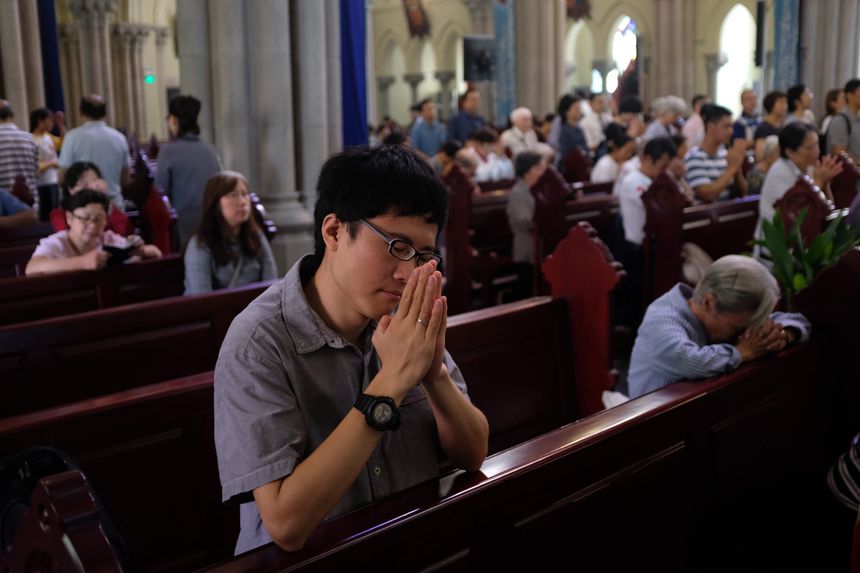Catholics attend a mass at the government-sanctioned St. Ignatius Cathedral in Shanghai on Sept. 30, 2018.
Photo:
johannes eisele/Agence France-Presse/Getty Images
The Vatican announced on Saturday a two-year extension to its provisional agreement with Beijing governing Catholic affairs in China. On the same day,
Hu Jintao,
China’s former Communist Party general secretary (2002-12) and president (2003-13) and
Xi Jinping’s
immediate predecessor, was forcibly removed from the party’s National Congress. That body’s convention, which occurs every five years, marks a signature event in the nation’s political life. This year, it anointed Mr. Xi to an unprecedented third five-year term. Whether Mr. Hu’s very public exit was owing to age-related health issues or a brute display of Mr. Xi’s new power is unclear. But there’s a lesson in it for Rome either way.
The exact contents of the Vatican’s deal with Beijing, first signed in 2018, remain secret. Yet certain elements are known. The Vatican has recognized the formerly illicit bishops of China’s regime-controlled Catholic Patriotic Association. It has also agreed to the government’s role in the naming of new bishops. In return, Beijing has reportedly promised increased tolerance for China’s Catholics and legal protection for the unofficial “underground” church traditionally loyal to Rome.
Such arrangements aren’t new. The church has a centuries-long history of this kind of engagement when it seemed necessary. The trouble with such deals is simple: Sometimes they work; more often they don’t. And the church usually loses. Even when honored, the arrangements tend to turn religion into a chaplaincy for the reigning power. This erodes the church’s credibility and evangelical mission. States can also ignore whatever details of a deal they find inconvenient, since the church has little recourse. The 1933 Reichskonkordat between Germany and the Holy See is a classic example. The Nazi regime began…
Click Here to Read the Full Original Article at RSSOpinion…

